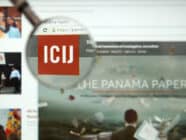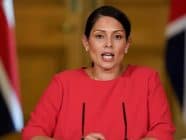“Herr Blatter. Have you ever taken a bribe?” This was a tense moment in the early relationship between Andrew Jennings, an investigative journalist, and FIFA officials. Jennings asked the question during Sepp Blatter’s press conference following his 2002 re-election as President of the Fédération Internationale de Football Association (FIFA). The question meant a lot to Jennings: it triggered his investigative work towards lifting the veil of secrecy and corruption surrounding the most powerful football governance organisation in the world. An investigation which lasted almost 15 years.
Jennings, a freelance journalist, is the author of a 2006 book titled “FOUL! The Secret World of FIFA: Bribes, Vote-Rigging and Ticket Scandals”, of the reportage “The Beautiful Bung”, broadcast by the BBC the same year, and of the exposé “Omerta: Sepp Blatter’s FIFA Organised Crime Family”, released in 2014. This in-depth work was possible thanks to Jennings’ investigative nose and good sources within his target organisation.
A profile of Jennings, published by the Washington Post this week, tells the behind-the-scenes story of his FIFA reports. Jennings was supported by tips and documents leaked by a whistleblower, starting immediately after the 2002 press conference. The documents, on Blatter and FIFA corruption, originated from the organisation’s Zurich headquarters. “And it ran from there”, said Jennings to the Washington Post, “and it still does”.
I gave the FBI the crucial documents that triggered yesterday’s arrests. There will be more to come. Blatter is a target.
— Andrew Jennings (@AAndrewJennings) 28 Maggio 2015
The FBI investigation which led to the arrests last week, was also sparked by Jennings’ work: US authorities had contacted him back in 2009: “I gave them the documents that really got this going”, said Jennings to the Washington Post, “I just hope I can afford the airfare to New York and that someone will let me sleep on their couch so that I can be there in the press box to say, ‘Hi guys! It’s been a long run, hasn’t it?’”
Jennings is now 71 and about to retire. In the past he has investigated the International Olympic Committee, organised crime, drug smuggling rings and police corruption. His work on FIFA has been credited by the Guardian for the success of the FBI investigation and in 2012 his reports in the Sunday Times sparked another independent criminal investigation in the US on the World Cup assignments in Qatar and Russia.
For Jennings it is all in a day’s work: “I’m a document hound. If I’ve got your documents, I know all about you,” he said. “This journalism business is easy, you know. You just find some disgraceful, disgustingly corrupt people and you work on it! You have to. That’s what we do. The rest of the media gets far too cozy with them. It’s wrong. Your mother told you what was wrong. You know what’s wrong. Our job is to investigate, acquire evidence,” he told the Washington Post.
Jennings’s story is an emblematic tale of what a journalist can do when he decides to investigate secrecy and power of non-transparent organizations, challenging also the accommodating silence of the press. Jennings succeded in being the catalyst that investigative journalism should always aim to be. His story is also a reminder of how whistleblowing is a fundamental tool in supporting transparency and change, where accountability is neglected, such as it was for the FIFA and its officials.
Tags: corruption, FIFA, Guardian, Investigative Journalism, Journalism, Sunday Times, Washington Post













































